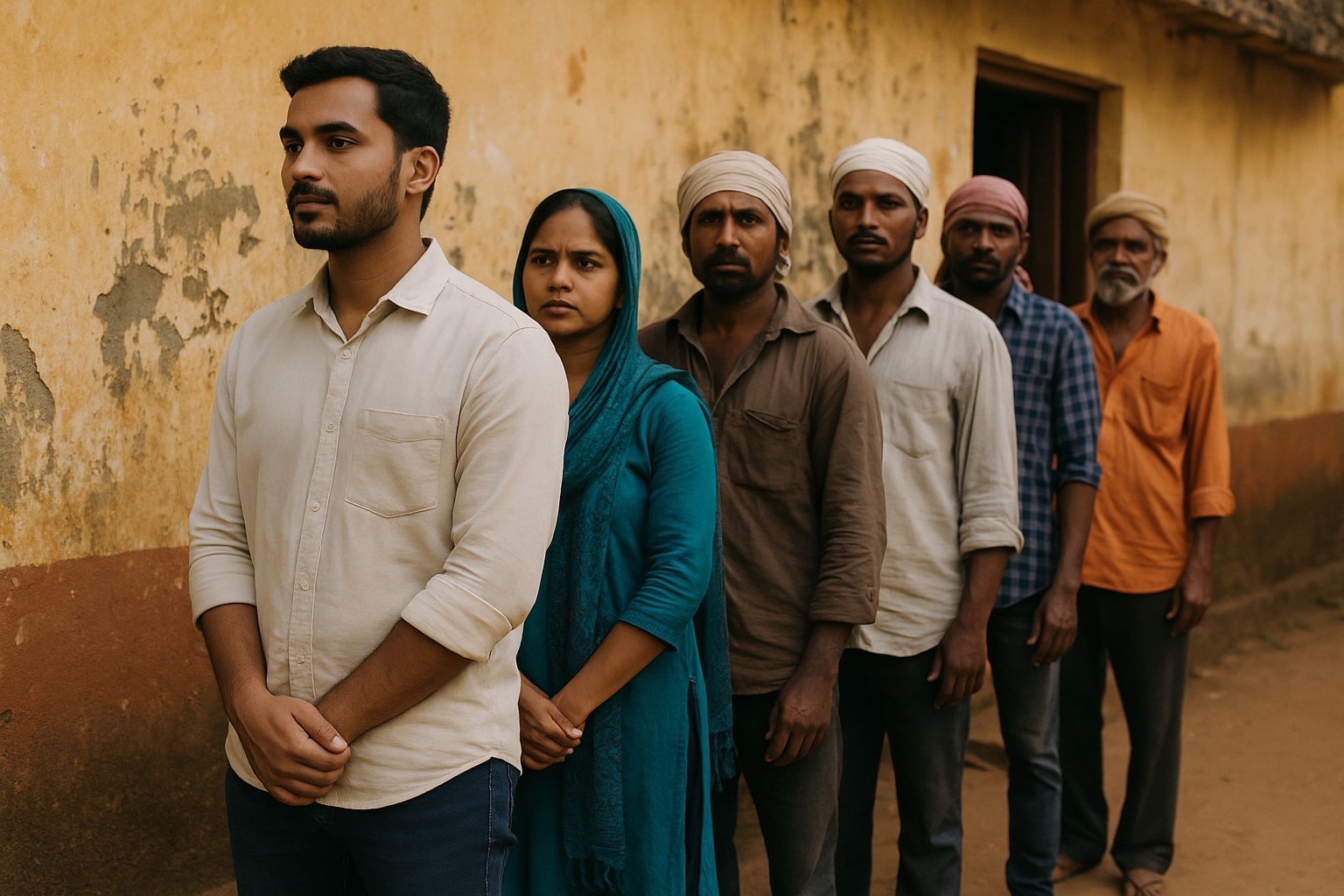When a vote bank is formed or even encouraged, the principle of independent electoral judgement is weakened

Early Lessons
It was during the LL.B. (Hons.) course in law college that the idea of universal adult franchise was first introduced in a way that carried real depth. It was explained as a constitutional promise that places every eligible voter on the same footing, permitting each adult citizen to select the electoral representative believed to understand personal and collective needs. Through those early lessons, the democratic value of equal political participation was recognised not as a remote rule but as a principle that strengthens each elected institution, from the State Legislative Assembly to the Lok Sabha.
A small recollection from the series Boardwalk Empire sometimes serves to revive this understanding. Margaret, who enters a crowded political gathering, speaks with quiet confidence about women’s voting rights in her native Ireland, where she explains that women already had the right to vote, as in most civilised societies. Her calm assurance reflects a belief that the freedom to choose one’s representative is a natural part of life. That sentiment captures the essence of universal adult franchise without the need for elaborate commentary. It reminds the viewer that the right to vote arises from equality, dignity, and the expectation of independent judgement.
While this article is not centred on the history of women’s voting rights, that brief moment in the series offers a useful reminder. It demonstrates how political choice forms an essential part of a person’s place in society and how the act of voting must rest on free judgement rather than direction from any single authority. That idea must now be applied to a different context in Goa, where a recent public remark has reopened an important conversation on the migrant vote.
Recent Remarks
A comment made by a representative claiming to speak for migrant interests has brought the matter into public discussion once again. It was stated that migrants in Goa form a vote bank and that this vote bank was created by Goans themselves. The idea was expressed confidently, almost as if such a classification should be accepted as a social norm within constituencies that have large migrant populations.
This raises a troubling point. It suggests that a section of the electorate identifies itself as a collective that can be guided, directed, or swayed in one direction as a group, rather than through individual decision. Such a description is disturbing, not because migrants participate in elections, which they are entitled to do, but because the term “vote bank” implies that independent political choice may be replaced by a bloc decision controlled by a few self-proclaimed leaders.
Effects of Labelling
When a population subgroup begins to refer to itself as a vote bank, it introduces a risk that the individual voter’s decision may be overshadowed by a fear of disagreement with the majority within that group. The voter may feel compelled to follow the dominant voice in the community, simply to avoid social disapproval or the impression of disloyalty. This creates a pressure that may not be openly acknowledged but is often quietly felt.
Such a situation produces a skewed form of social behaviour in the electoral field. Instead of each voter exercising independent judgement based on personal understanding of the manifesto, performance, or capability of the candidate, the voter feels confined within a collective mindset. The group’s preference becomes the safe choice, even if the voter’s true preference lies elsewhere. This is harmful not because migrants participate, but because any suggestion that they must vote as a bloc undermines the individual’s right to choose.
Choice and Freedom
The constitutional foundation of universal adult franchise rests on the belief that electoral choice must originate from personal assessment. It cannot be dictated by community pressures, local influencers, or representatives who claim authority over a subpopulation. Every voter is expected to select a candidate based on personal evaluation of the manifesto and the candidate’s ability to discharge public duties.
When a vote bank is formed or even encouraged, the principle of independent electoral judgement is weakened. It may not amount to a controlled vote in the strict legal sense, yet it develops into a form of social engineering.
Migrant Participation
Migrants in Goa contribute to the social and economic life of the State, and their participation in elections is not only lawful but desirable in a democracy. Their interests, like those of any resident population, must be recognised and represented. The issue does not arise from their presence but from the claim that they form an organised vote bank. This claim gives the incorrect impression that migrant voters are expected to vote according to the directions of community leaders or associations. Such a structure goes against the democratic expectation that every vote must be cast independently.
Just as Margaret in Boardwalk Empire expressed confidence in the ability of women in her home country to make up their own minds, migrant voters in Goa must be trusted to exercise their own judgement. No voter should feel pressured into supporting a candidate simply because a local leader insists that it is the correct choice.
Constitutional Duty
The Representation of the People Act and the Constitution both assume that every voter will exercise free and fair judgement. This expectation is not merely a right but also a democratic responsibility. When any group identifies itself as a vote bank, the risk emerges that this responsibility may be weakened through collective influence. Safeguarding the freedom of individual choice therefore becomes essential, particularly in constituencies where migrant populations form a large share of the electorate.
In such areas, the right to personal judgement must be protected with the same seriousness with which universal adult franchise was originally introduced. Every voter, migrant or otherwise, must be permitted to exercise the freedom of choice without fear, pressure, or persuasion from those who claim leadership over the community. Only then can universal adult franchise retain its true meaning.